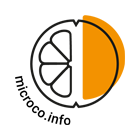You are here:
Red yeast rice
Red “yeast” rice (also known as red rice) has its traditional origin in China. Red yeast rice is made by fermenting boiled white rice with a type of mould of the Monascus genus. This produces substances that dye the rice bright red. In East Asia in particular, red yeast rice is therefore used as a food colouring. The fermentation process also leads to the production of compounds that can have pharmacological effects (like medicines) and that may also be harmful to health.
Important in this context are monacolins: these are chemical compounds that occur naturally in certain types of mould. Monacolins can also be found in red yeast rice and can inhibit an enzyme in the liver that the body requires in order to make cholesterol. Monacolin K is especially important, since red yeast rice contains considerable amounts of this compound. In terms of its structure and activity, monacolin K is identical to the drug substance lovastatin. This substance is used in medicinal products requiring authorisation, to lower cholesterol levels.
Possible side effects of lovastatin include headaches, nausea, diarrhoea, weakness, skin rashes and muscle cramps. In rare cases, it can also disrupt kidney and liver function or damage skeletal muscle (known as ‘rhabdomyolysis’). Medicinal products with the active ingredient lovastatin require a prescription. In all cases, the doctor will weigh risks against benefits to decide whether it makes sense for a patient to receive a medication with lovastatin.
In Asia, red yeast rice has long been consumed on account of its ability to lower cholesterol levels, and also to treat digestive problems as well as cardiac and vascular disorders. Food supplements containing various quantities of red yeast rice are also marketed within the EU. The monacolin K contained in these products can also cause the same side effects as listed above. People do not usually consult their doctor before taking these food supplements, however.
In some circumstances, the toxic substance citrinin can also be formed by the fermentation process. This substance can trigger genetic mutations, and can also cause harm to the kidneys and to the unborn child. The maximum permitted level of citrinin in rice-based food supplements has been lowered by the EU Commission from 2,000 micrograms per kilogram (μg/kg) to 100 μg/kg, and this figure will apply from 1 April 2020 on. The EU Commission recently commissioned a safety assessment of monacolin K in food supplements from the European Food Safety Authority (EFSA). The EFSA report was unable to identify a dietary intake of monacolins that does not give rise to concerns about harmful effects to health. The German Federal Institute for Risk Assessment (BfR) concurs with this finding.
In March 2019, a meta-analysis was published that addressed the tolerability and safety of red yeast rice products containing monacolin K sold as food supplements (Fogacci et al.). One conclusion drawn by the authors was that there is no increased risk of the occurrence of muscular complaints. The BfR has reviewed this paper and is of the opinion that it exhibits a number of key limitations: its overall findings cannot therefore be viewed as conclusive. Accordingly, this meta-analysis offers no appropriate basis on which to rebut the significant health concerns about red yeast rice food supplement products containing monacolin K.
In Germany, no official approval is required for the marketing of food supplements as these are not subject to the pharmaceutical law but to the food law. However, before they are placed on the market for the first time, they must be registered with the German Federal Office of Consumer Protection and Food Safety (BVL). Due to serious questions about their safety, the BfR does not recommend the consumption of food supplements based on red yeast rice. Anyone who still wishes to use such a food supplement should only do so undermedical supervision or after consulting with their doctor. In particular, consumers should be aware that levels of monacolin K in supplements may vary widely from one product to another.
BfR opinion: A questionable way to lower cholesterol: food supplements containing red yeast rice to be taken only on medical advice  (345.4 KB)
(345.4 KB)
15/01/2020

